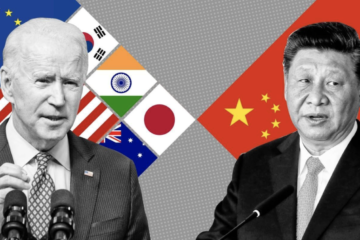Author: Paul Price, Jr.
After the 2013 US Supreme Court decision in McCutcheon v. FEC declared unlimited donations to Super PACs constitutional, American liberals feared for the life of their democracy, foreboding that wealthy, well-connected candidates would rule politics. So when former Florida governor Jeb Bush ended his campaign after raising $100 million and beginning the race as the prohibitive frontrunner for the Republican nomination, political pundits’ post-mortems of Jeb! began questioning the importance of money in presidential campaigns. These questions miss the mark. If we disregard Republican candidate Donald Trump’s populist wave, this election, often described as unpredictable and unconventional, has conformed to liberals’ expectations. Money is still decisive to success in presidential campaigns.
Getting coverage
Four of the five presidential frontrunners, Republicans Marco Rubio and Ted Cruz and Democrats Bernie Sanders and Hillary Clinton, have each raised around $100m dollars, courted big donors, and spent tens of millions of dollars to reach the point they are today. The fifth frontrunner and exception, Mr. Trump, has spent relatively little. His bombastic, bigoted, headline grapping rhetoric has earned nightly news coverage instrumental in growing a candidate’s supporter base when battling sixteen other candidates for the attention of angry voters.
Candidates determined to appear only slightly xenophobic and bigoted have tried other tactics to gain similar news coverage and support including camping out in early voting states, co-opting Mr. Trump’s coverage, making absurd videos, and bashing Secretary Clinton. Many of these tactics and the now-defunct campaigns which tried them failed to grab attention and attract donors. But two of these tactics have proved somewhat effective.
Mr. Cruz spent the first half of his campaign cozying with Mr. Trump by joining him at an anti-Iran deal rally and complementing him and his principles throughout his many rallies and Republican debates. Now Mr. Cruz is battling for second place. In addition to Mr. Cruz, Republican candidate John Kasich camped out in New Hampshire, holding town halls and rallies for many months and earned a second place. However, both of these candidates are courting rich donors and raising millions of dollars. And despite his success in New Hampshire, Mr. Kasich is now struggling and did awfully in South Carolina because he lacked money for organizing and outreach.
The Important Early Voting States
Big money is especially important for early-voting states like Nevada and Iowa where voters take part in caucus voting systems which require a well-developed and expensive field organizing team. Setting up organizational networks many weeks ahead of elections is vital because it permits time for voter contact, the primary purpose of these networks. This level of organization led to President Obama’s 2008 electoral success against Ms. Clinton. Ms. Clinton learned from that loss and set up her South Carolina campaign house 8 months before the South Carolina primary took place this February.
Finding success in these early states also impacts your future long-term chances. Donors and voters misperceive early success as electoral viability. This is prescient because donors and voters only want to support electable candidates. One poor performance in these early states can impact the rest of your campaign by causing candidates to operate without the donor support necessary to set up the organizational networks necessary for success throughout the almost year and a half long election.
The need for success in early voting states is problematic because they say nothing of a candidate’s national appeal since the electorate in New Hampshire and Iowa (the first two voting states) bear no resemblance to the demographics of the national electorate. So when donors see candidates performing well in early voting states, donors disregard other candidates who lacked the money needed to set up their campaign far before the elections were held. This means candidates without substantial financial backing before the first elections are doomed from the start.
The (Democratic) Socialist exception?
The campaign of Democratic contender and Super PAC-less Bernie Sanders has been hailed as the exception to the big money norm. The Senator’s populist overtones and web-based fundraising have enriched his campaign and enabled him to build the expansive field network and fundraising machine necessary to vie for the nomination.
Supporters say despite this conventional campaign set up, he is different. His funds come from “small-donors” with donations averaging $27. So, the argument goes, although he is dependent on money, he is not beholden to big donors. Moreover, Mr. Sanders only began developing his expensive field network after his rage against the machine message caught the public’s (read: the media’s) attention and set off an avalanche of over two million donations, proof that one doesn’t need money from the start to be successful.
However, Mr. Sanders is less distinctive than many think. He is not proving money isn’t necessary for a successful campaign, only that people will come if you promise utopia. Mr. Sanders’s success is not much different from Mr. Trump’s. Through populist, angry, polarizing rhetoric they both appealed to voters, captured media coverage, and found electoral success. The only difference is that while Mr. Trump asks for votes, Mr. Sanders asks for votes and donations.
Jeb! Will Be OK
Meanwhile, Mr. Bush exasperatedly asked for applause. His centrist convictions, as well as his last name, undermined him in the always-polarizing presidential primary season where success comes with hard line positions appealing to each party’s voter base, the most likely to turn out and vote.
This election continues to befuddle everybody. But it conforms to expectations that besides Mr. Trump, viable frontrunners require money. Anyone who argues that money is no longer instrumental in successful campaigns will have to settle for campaigns full of vitriolic, attention-grabbing rhetoric and Twitter wars. Or an election not much different from this one.


